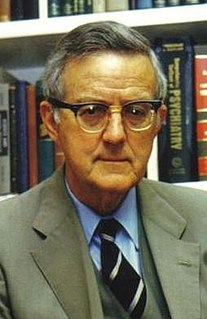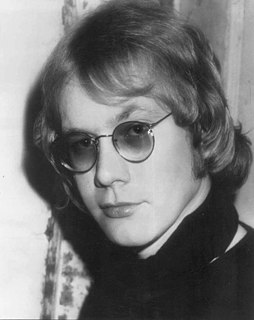A Quote by Benoit Mandelbrot
Round about the accredited and orderly facts of every science there ever floats a sort of dustcloud of exceptional observations, of occurrences minute and irregular and seldom met with, which it always proves more easy to ignore than to attend to.
Related Quotes
Round about the accredited and orderly facts of every science there ever floats a sort of dust-cloud of exceptional observations, of occurrences minute and irregular and seldom met with, which it always proves more easy to ignore than to attend to... Anyone will renovate his science who will steadily look after the irregular phenomena, and when science is renewed, its new formulas often have more of the voice of the exceptions in them than of what were supposed to be the rules.
Were I disposed to consider the comparative merit of each of them [facts or theories in medical practice], I should derive most of the evils of medicine from supposed facts, and ascribe all the remedies which have been uniformly and extensively useful, to such theories as are true. Facts are combined and rendered useful only by means of theories, and the more disposed men are to reason, the more minute and extensive they become in their observations
Difficulties arise when reported observations seem to conflict with 'facts' that the majority of scientists accept as established and immutable. Scientists tend to reject conflicting observations.....Nevertheless, the history of science shows that new observations and theories can eventually prevail.
The impossibility of separating the nomenclature of a science from the science itself, is owing to this, that every branch of physical science must consist of three things; the series of facts which are the objects of the science, the ideas which represent these facts, and the words by which these ideas are expressed. Like three impressions of the same seal, the word ought to produce the idea, and the idea to be a picture of the fact.
Proust is interested in minutiae because life, as he sees it, is seldom ever about things but about our impression of things, not about facts but about the interpretation of facts, not about one particular feeling but about a confluence of conflicting feelings. Everything is elusive in Proust because nothing is ever certain.
Common sense … has the very curious property of being more correct retrospectively than prospectively. It seems to me that one of the principal criteria to be applied to successful science is that its results are almost always obvious retrospectively; unfortunately, they seldom are prospectively. Common sense provides a kind of ultimate validation after science has completed its work; it seldom anticipates what science is going to discover.
Natural science is founded on minute critical views of the general order of events taking place upon our globe, corrected, enlarged, or exalted by experiments, in which the agents concerned are placed under new circumstances, and their diversified properties separately examined. The body of natural science, then, consists of facts; is analogy,-the relation of resemblance of facts by which its different parts are connected, arranged, and employed, either for popular use, or for new speculative improvements.
There is a slow-growing beauty which only comes to perfection in old age.... I have seen sweeter smiles on a lip of seventy than I ever saw on a lip of seventeen. There is the beauty of youth, and there is also the beauty of holiness—a beauty much more seldom met; and more frequently found in the arm-chair by the fire, with grandchildren around its knee, than in the ball-room or the promenade.
Do you mean to say," asked Caspian, "that you three come from a round world (round like a ball) and you've never told me! It's really too bad for you. Because we have fairy-tales in which there are round worlds and I have always loved them … Have you ever been to the parts where people walk about upside-down?" Edmund shook his head. "And it isn't like that," he added. "There's nothing particularly exciting about a round world when you're there.








































